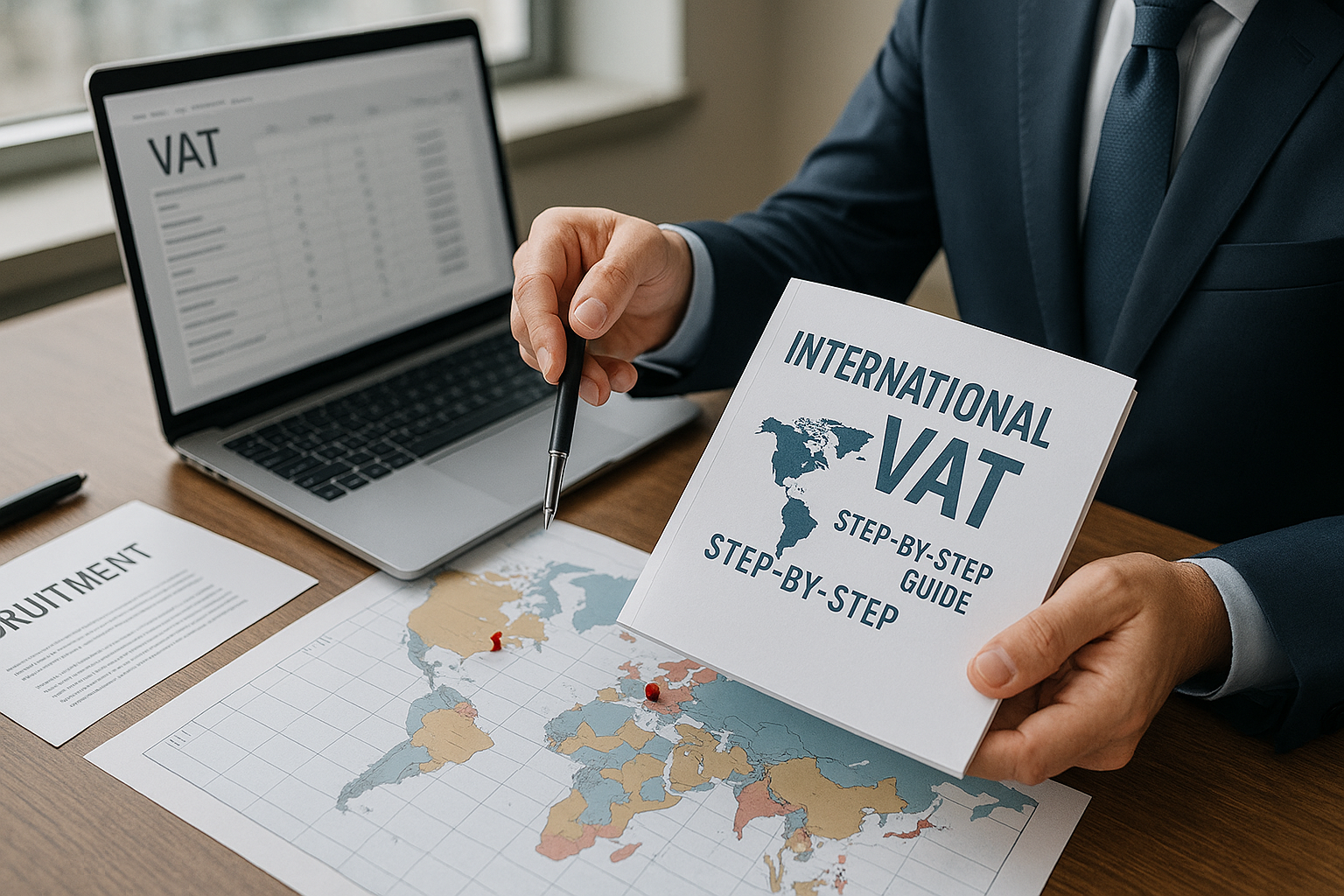By
Beatriz Jardim
July 24, 2025

Expanding your recruitment agency’s operations internationally is an exciting opportunity to grow your business and build a global client base. However, navigating international VAT regulations can be complex, particularly when placing candidates or working with overseas clients. Understanding when VAT applies, how to invoice clients, and how to handle international VAT obligations is critical for compliance and profitability.
This step-by-step guide will help you navigate international VAT and position your agency for global success.
VAT regulations differ across countries, and recruitment agencies need to understand when VAT applies based on the location of their clients and candidates. The key factors influencing VAT obligations are:
The VAT rules depend on the “place of supply,” which dictates the country’s VAT laws that apply to your services. The place of supply varies based on the type of client:
For B2B transactions, verifying the VAT registration status of your client is essential:
When dealing with international clients, your invoices must meet specific VAT requirements:
Recruitment agencies providing temporary staffing services face unique VAT considerations:
If your agency incurs expenses in foreign countries (e.g., travel or business services), you may be eligible to reclaim VAT through the VAT refund scheme for businesses outside the country:
In some cases, you may need to register for VAT in another country, especially if you have a physical presence or generate significant revenue there. This is common for:
International VAT compliance requires meticulous record-keeping. Maintain records of:
By properly managing international VAT, your recruitment agency can:
Navigating international VAT regulations can be challenging, but you don’t have to do it alone. At Directive Finance, we specialize in supporting recruitment agencies with:
We’ll ensure your agency stays compliant and maximizes VAT efficiencies, allowing you to focus on expanding your global footprint.
Expanding your recruitment agency internationally is an exciting opportunity, but it requires careful planning and compliance with international VAT rules. By following this guide, you can navigate VAT complexities with confidence and position your agency for long-term success.
If you’re ready to streamline your international VAT compliance, contact Directive Finance today for expert advice tailored to recruitment agencies. Let’s make your global expansion a success!
Got 5 mins? Get your FREE online Financial Growth Assesment now!
Simply answer 25 questions and we’ll help you uncover expert curated insights on how well you’re using finance to drive your business forward.


